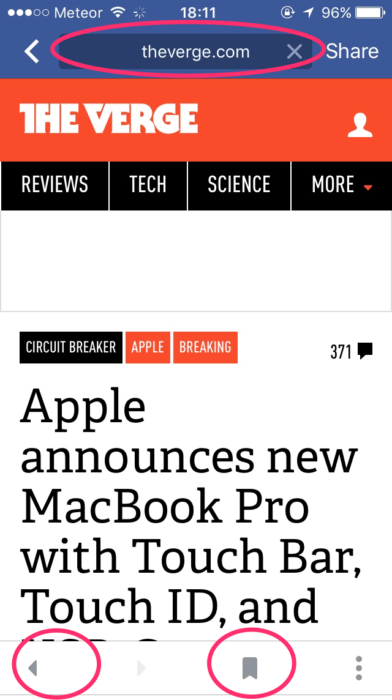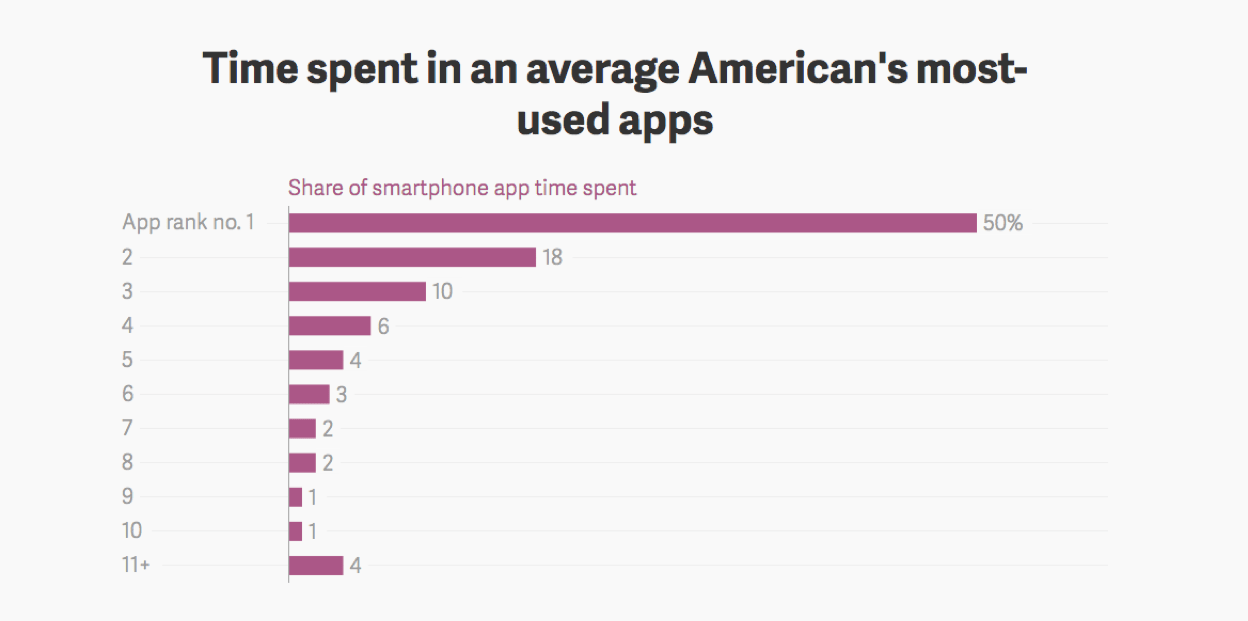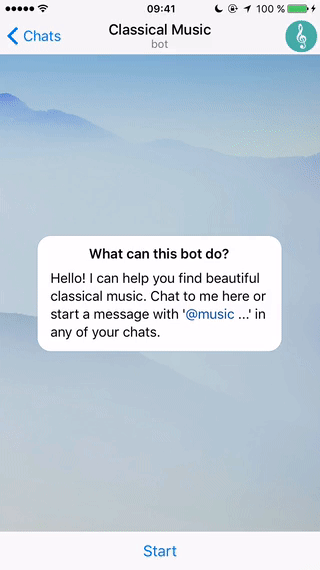The future of mobile is not applications, but browsers

In discussions about the future of mobile, the thesis is constantly heard that “in the end, only iOS or Android mobile apps will remain”. Intercom senior product manager at Intercom decided to argue with that. He believes: many who talk about this have a personal interest in the survival of native mobile apps.
Article translated by Alconost localization company
')
Statements that the future belongs to native mobile applications ignore the fact that browsers and the web are quickly becoming the mobile operating system of the future, and native applications are slowly dying out.
Native apps are good, but not for everything.
Of course, native applications are great for certain things. For example, for frequent intensive tasks like communicating with friends, family, and colleagues — something that we do every day many times. Applications like Snapchat, WhatsApp, Facebook Messenger, need access to cameras, microphones and the operating system directly. In this case, the creation of native applications for iOS and Android makes sense.
But do we really need a native installation for any other types of applications? Mobile web and today's browsers can easily handle almost everything we need. Let's not forget that native mobile apps were a temporary fix for short-term connectivity issues. In a world with 4G and ubiquitous Wi-Fi, these problems no longer exist.
Thanks to the development of mobile web capabilities and standards, companies like Patagonia have already said goodbye to their native mobile apps.

- Adam Kmiec (@adamkmiec) June 1, 2016
What was that about websites being irrelevant?
Time to say goodbye.
–––––
Thank you for supporting the Patagonia iPhone app. Now our site is beautiful and convenient in any mobile browser, and we no longer support this application - you can remove it from your device.
Visit Patagonia.com
*
Adam Kmecha @adamkmiec
Who said there that the sites are irrelevant and the future exclusively for applications?
We spend more time in mobile browsers than it looks.
Not only companies refuse native apps: today's average American downloads zero apps per month . It has little to do with how much time we spend with our smartphones — compare this application fatigue with the amount of time we spend in browsers.
Everyone is familiar with Firefox, Chrome, Safari, and Internet Explorer — “traditional” browsers with an address bar, search functionality, and forward / back buttons. But these are not the only browsers we use every day.
We spend more and more time on instant messengers and social networks, which are themselves shells for the mobile web. In fact, they are browsers. And these browsers give us the social context and the links to which we strive, but which traditional browsers do not give.
For example, Facebook is our browser for the social web. It makes it easier to view and search for friends, companies, and potentially interesting content. We do not “pull out” content with traditional browsers, but Facebook “delivers” content to us, based on our interests and the interests of our friends. Pay attention to a number of aesthetic changes: for example, several new features of the Facebook application for iOS, which bring it closer to a real browser.


The Facebook browser’s built-in browser has backward and forward buttons, it also allows you to bookmark and enter your URL.
Whereas Slack is our browser for work. It simplifies the search for documents, discussions and data. In the past, we had to request the necessary information from our colleagues, while we simply missed the information that could be useful, but we did not know anything about it. Today, our colleagues “deliver” documents and updates to us using browsers like Slack, which makes our working days easier and more consistent.
WhatsApp is our browser for close friends. Whether in one-on-one communication or in small groups, we view and consume personalized content from our closest friends who “deliver” it to us. We trust their recommendations - this is the most personalized way to browse the web.
The listed messengers are all native applications, of course. But it is critical that they include new features that replace actions that were previously performed in other native applications or elsewhere. They offer a dizzying set of capabilities based on millions of smart integrations with third-party software products, and every need to leave this new type of browser virtually disappears.
In fact, these social browsers are so successful that only three of us are enough to find and consume all the content we need. Not surprisingly, Facebook, Google and many others are betting on it. If you own a browser, you own an audience.

Time spent in apps used by an average american
Number in the rating / Time in the application relative to the total time with the smartphone
According to comScore, users spend 50% of the time in the most used application and almost 80% of the time in the three most used
Bots - a new way to view
The most exciting thing about these new browsers is how much everything in them is still changing.
Bookmarks have been at the heart of operating systems since the 1990s — in the form of desktop icons and start menus. As we began to spend more time in traditional browsers, we began to rely on a new type of bookmarks. We saved web page addresses and domain names. We installed toolbars to access services like MSN News, Google search, Yahoo! Mail. We personally selected content for ourselves.
As for mobile technologies, we are witnessing the emergence of bots as a new type of dynamic bookmarks for mobile browsers. Instead of typing a URL in the address bar each time and waiting for content to load, we use bots that can deliver content when we need it. They can adapt to our interaction with content and, over time, serve more and more suitable for us. They select content for us.
For example, the music option in Telegram messenger: the bot uses a built-in control panel that allows you to find and listen to music without even sending any messages. It also updates your own posts on the fly as you progress through your search results.
So you do not need a) install a separate native mobile application (such as Spotify) or b) search for music in a browser like Chrome: instead, bots will be able to provide any user needs, reserve a table in a restaurant or buy something, within social applications or messenger.


Over time, bots will become a way for us to maintain our interests and behaviors. The content delivered to us implies action. We can book and buy something. We can read something. The selection of all this will determine the network of our close friends and artificial intelligence.
What does this mean for tomorrow's startups
The most popular operating system in the world will always be the web - not iOS or Android. It is important that the next generation of software manufacturers is not limited to the creation of only native versions of web applications for iOS and Android.
Just ensure that web applications look and work well in a new type of mobile browsers - instant messengers. Do not create under iOS or Android just for the sake of imaginary distribution. It is necessary to distribute where people spend most of their time: in social applications and instant messengers - new mobile browsers equipped with bots of the world.
About the translator
The article is translated in Alconost.
Alconost is engaged in the localization of applications, games and websites in 60 languages. Language translators, linguistic testing, cloud platform with API, continuous localization, 24/7 project managers, any formats of string resources.
We also make advertising and training videos - for websites selling, image, advertising, training, teasers, expliners, trailers for Google Play and the App Store.
Read more: https://alconost.com
Source: https://habr.com/ru/post/320250/
All Articles